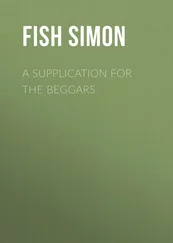1 ...7 8 9 11 12 13 ...20 The BBC news from my grandfather’s radio wafted through the waving curtains of the living room. Winston Churchill’s strident voice came on the air:
“Hitler knows that he will have to break us in this Island or lose the war....”
His voice faded out with the weak transmission, and then burst into clarity.
“Let us therefore brace ourselves to our duties, and so bear ourselves that if the British Empire and its Commonwealth last for a thousand years, men will still say, this was their finest hour.”
The news ended with “God Save the King.” Then the dulcet notes of a popular wartime song about the white cliffs of Dover trickled out to the veranda.
How strange, I thought to myself. This was the first time I was hearing popular English music play on my grandfather’s radio. He usually switched the radio off after the news.
“Vera Lynn,” murmured Manik softly. “What a magnificent voice. Do you listen to Western music, Layla?”
“I listen to Western classical mostly,” I replied. “Dadamoshai has quite a collection of Russian and German composers.”
“There is something I have wanted to ask you,” said Manik. “How did both your parents die?”
I was not surprised he had heard about my parents. He must have thought it odd that I lived with Dadamoshai and not with my mother and father.
“My father was a freedom fighter. He died in the Cellular Jail.”
“In the Andaman Islands? Is this the same notorious Cellular Jail where they hanged political prisoners?”
“Yes.”
I did not tell him I had heard that political prisoners were not only hanged in the gallows there, they were sometimes tied to cannons and blown up. The British meted harsh punishments when it came to political dissenters.
“Have you heard about the Chittagong armory raid?” I asked.
“Oh yes. A famous guerrilla movement in the ’30s, was it not? To overthrow the British? It was led by a schoolmaster, I believe.”
“That’s right. My father was a revolutionary in that movement. He was captured and hanged.”
“And your mother? I know women fighters played a big role in that uprising.”
“My mother...” I hesitated, because I had never shared this with anyone before. “My mother drowned. In a lily pond. She killed herself.”
I have a photo of my parents and me, taken when I was about a year old, just before my father was captured and exiled to the Andaman Islands. The faded sepia image shows a thin man with fiery eyes seated on a straight-backed chair in what appears to be a courtyard, with a chicken pecking in the background. Next to him stands my mother, frail and taut. She is wearing a plain-bordered sari and old-fashioned blouse with sleeves up to the elbow. Her arms are crossed over her chest; her eyes are naked and staring, a quiet desperation lurking in their depths. By then she was already lost to the world.
Another song was playing on the radio now by the same singer. It was a sentimental love song presented in a slow caressing style. The singer’s voice trembled with heartbreak as she expressed the unbearable sorrow of parting with her lover. It got me right in the gut.
My face was hidden in the shadows, but Manik must have sensed my tears because he reached into his kurta pocket and fished out a clean white handkerchief, which he offered me across the coffee table. He did not try to touch my hand or say anything. In the dark, I tucked the handkerchief under the cushion of the sofa. I never gave it back to him. We both sat quietly till the song ended and the plaintive strains of the orchestra faded, followed by nine hollow strokes from the pendulum clock that echoed in the hallway.
Manik leaned forward and stubbed out his cigarette. He still had not said a word. I choked back a lump in my throat, thinking: This is our last time together. The next time I see him, he will be a married man, belonging to another.
“Let me go and find Dadamoshai,” I said, dashing inside the house. In the dark passageway, I hastily wiped off my tears. Dadamoshai was nowhere to be found. Chaya said he had gone to the neighbor’s house to borrow a newspaper.
I returned to the veranda feeling more composed. “Dadamoshai’s gone out, but he’ll be back any minute. Do you want to wait?” I said, hoping to buy a few extra minutes. “I am sure he would like to say goodbye.”
“I am running terribly late, Layla,” Manik said, getting to his feet. “Please thank the Rai Bahadur for all his kindness and tell him I will write from Calcutta, will you?”
“Of course.”
We stood together awkwardly under the porch as we said our goodbyes. I watched a rain beetle dash itself on the naked lightbulb with a tiny ting, then spin in dizzy circles on the floor. I was about to turn and walk back into the house when Manik did something unexpected: he reached out and brushed his fingertips lightly across my cheek. It was a fleeting gesture, a butterfly’s caress.
“Lay-la...” He breathed my name with such tenderness that it trembled in the air between us.
Then he simply turned around and walked away, while my heart quietly broke, the pieces scattering like petals on the gentle night breeze.
CHAPTER 6
Soon after I was born, my mother began to unravel. Her descent into madness was slow and surreptitious. It began with a slackening of the mind, a stray thread, a small tug in the wrong direction. She complained that the Small People in her head kept her awake at nights. She pulled at her lovely waist-length hair till her scalp bled. The Small People scrabbled in her eardrums and pulled her nose, turning it inside out like a foot sock, right into her brain. This drove her even more insane, because every time she sneezed she imagined that bits of her brain blew out into her handkerchief. By the time I was two years old, my mother had sneezed most of her brain out of her head. She became empty and hollow, a green coconut devoid of substance.
When I was three years old, my mother, on the advice of a Holy Man, decided to marry me off to a banana tree. This act was not the outcome of sheer lunacy alone, but a very antiquated ritual in our society: marrying off a bad-luck child to an object, traditionally a banana tree, was believed to “cancel out” one’s negative horoscope.
One overcast morning in June, my mother dressed me like a traditional Bengali bride in a red sari with a gold veil, put kohl around my eyes, dotted my forehead with sandalwood paste and lined my tiny feet with alta, the red paste worn by brides. She carried me to the grove by the lily pond and tied me by my veil to a banana tree. She blew a conch, broke open a coconut, chanted prayers and sprinkled holy water, and left me there. A slanted drizzle fell straight through the afternoon. I was bitten by red ants and caught a death of a cold. I was discovered in the early evening by a neighbor.
My mother was also found at dusk, floating in the lily pond, facedown in the water. Her skin was waxy and cold, her lips blue, and her eyes had turned dull as mud. Her delicate hands bobbed by her side like the wings of dead birds. She had been dead several hours.
After my mother died, I was cared for by my maternal grandparents for a while and then I moved in with my great-aunt, Mitra Mashi, whom I called Mima.
Mima was a great big woman who wore her sari a whole foot off the ground, the tail end tucked into her waistband like a sumo wrestler. She was an earthy woman who laughed easily and was given to manly backslapping that made the elders cringe.
Mima stories abound in the family. My favorite one is about the time she laughed so uproariously that she accidentally swallowed a stinkbug. Another time she thumped an old uncle enthusiastically on the back and made him swallow his dentures.
To Dadamoshai’s great delight and approval, Mima earned a master’s degree and fought her way up the teaching ladder to become the first female vice principal of the most prestigious boys’ school in Sylhet.
Читать дальше












